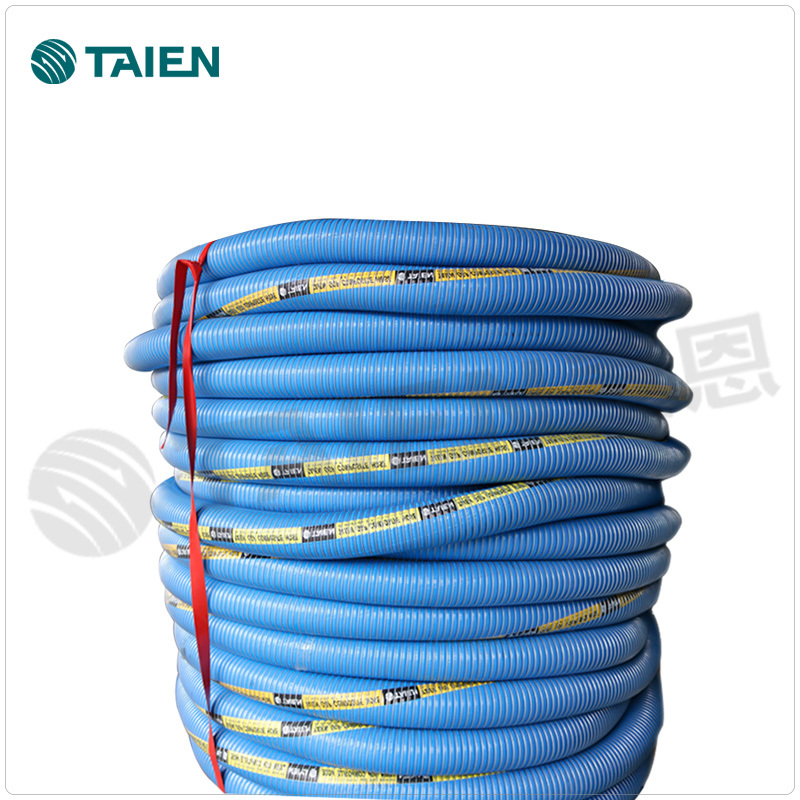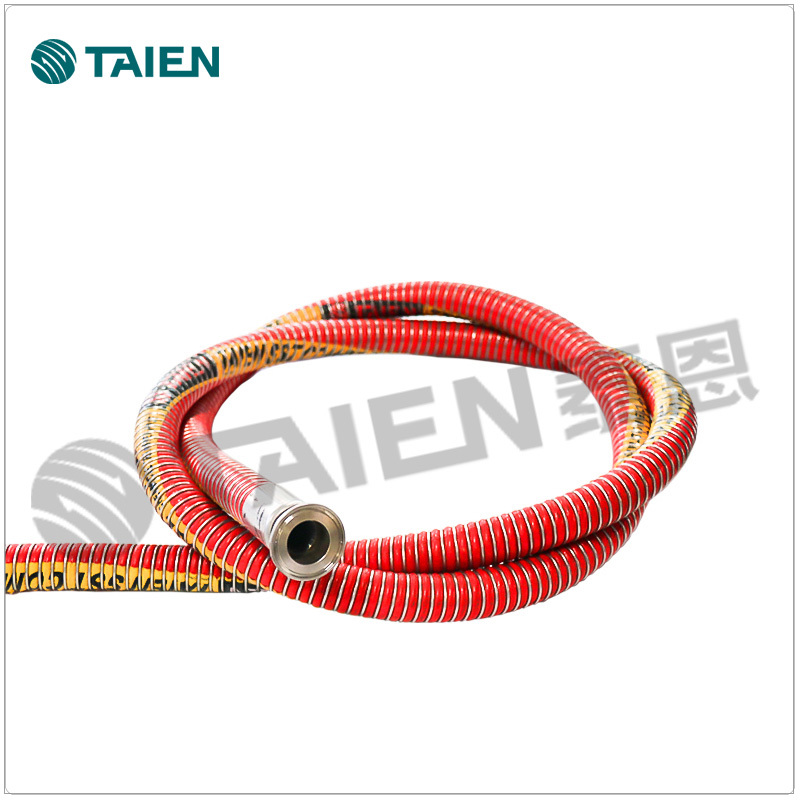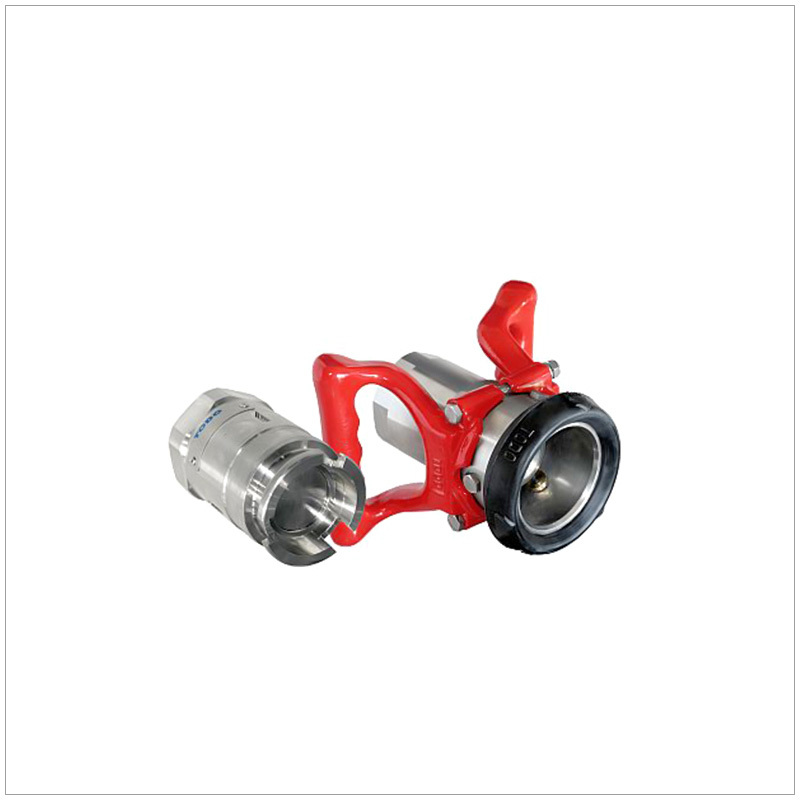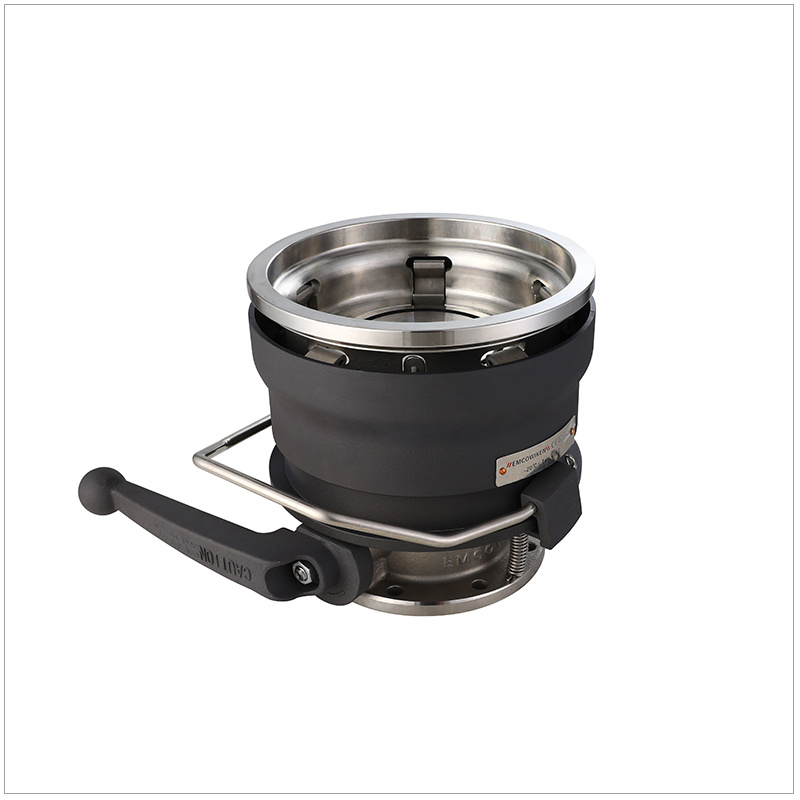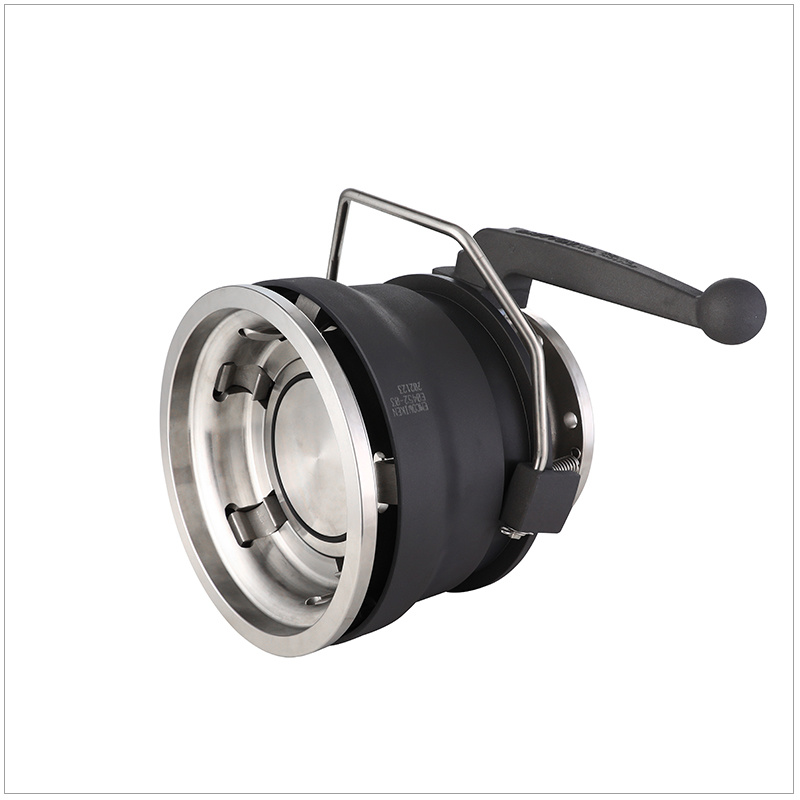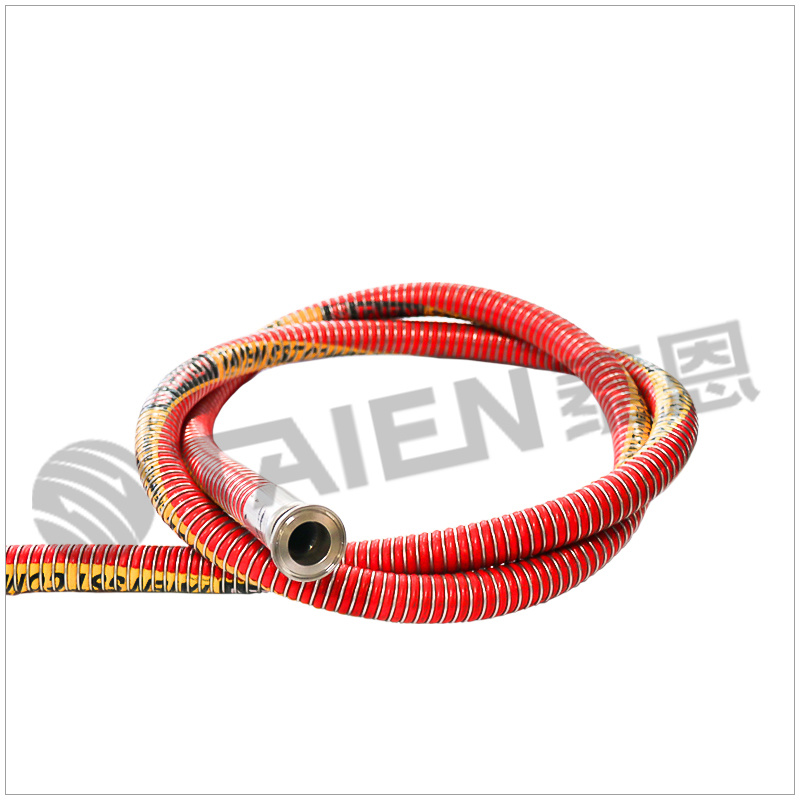The Best Industries for Effectively Utilizing Composite Hoses: A Comprehensive Guide
Release time:
2025-07-31
Author:
Source:
Abstract
The Best Industries for Effectively Utilizing Composite Hoses
Composite hoses are essential for a variety of industries, thanks to their flexibility, durability, and resistance to various chemicals. These hoses are constructed from multiple layers, usually comprising synthetic materials and wire reinforcements, making them ideal for transferring liquids and gases in challenging conditions. In this
The Best Industries for Effectively Utilizing Composite Hoses
Composite hoses are essential for a variety of industries, thanks to their flexibility, durability, and resistance to various chemicals. These hoses are constructed from multiple layers, usually comprising synthetic materials and wire reinforcements, making them ideal for transferring liquids and gases in challenging conditions. In this article, we will delve into the industries that most effectively utilize composite hoses and explore their numerous applications, advantages, and considerations for maintenance.
Table of Contents
- Introduction to Composite Hoses
- Key Advantages of Composite Hoses
- Top Industries Utilizing Composite Hoses
- Oil and Gas Industry
- Chemical Manufacturing
- Food and Beverage
- Marine and Shipping
- Pharmaceuticals and Biotechnology
- Key Considerations for Choosing Composite Hoses
- Maintaining Composite Hoses
- FAQ About Composite Hoses
- Conclusion
Introduction to Composite Hoses
Composite hoses are specialized flexible hoses designed to transport fluids and gases under pressure in various industrial applications. These hoses are typically constructed from a variety of materials, including thermoplastics, fiberglass, and metal wires. Their multi-layered design provides enhanced strength and flexibility, making them suitable for handling corrosive, hazardous, and high-temperature substances.
The versatility of composite hoses extends beyond their material properties; they can be customized to meet specific operational requirements, making them a preferred choice in many sectors. As industries evolve and the demand for safe and efficient transfer solutions increases, understanding the benefits and applications of composite hoses becomes paramount.
Key Advantages of Composite Hoses
Composite hoses offer several advantages over traditional rubber or metal hoses. These benefits include:
Durability and Flexibility
Composite hoses are engineered to withstand tough environments. Their flexible nature allows for easy installation and movement, while their robust construction ensures they can handle mechanical stress and extreme temperatures.
Corrosion Resistance
The materials used in composite hoses are often resistant to a wide range of chemicals, making them ideal for transferring hazardous and corrosive substances without the risk of degradation.
Lightweight Design
Compared to metal hoses, composite hoses are significantly lighter, which simplifies handling and installation. This lightweight characteristic reduces fatigue for workers who frequently maneuver hoses during operations.
Versatility in Applications
Composite hoses can be customized for various applications, allowing them to be tailored to specific industry needs. This versatility makes them suitable for multiple sectors, from oil and gas to food processing.
Top Industries Utilizing Composite Hoses
Composite hoses find application in several key industries due to their unique properties. Let’s discuss the top industries that benefit from these advanced hoses.
Oil and Gas Industry
The oil and gas industry is one of the largest consumers of composite hoses. These hoses are used to transfer crude oil, refined fuels, and other hydrocarbons from offshore rigs, tankers, and storage facilities. Their resistance to high pressures and various chemicals makes them ideal for this sector, where safety and reliability are paramount.
Composite hoses in this industry are designed to comply with stringent safety regulations, ensuring that they can handle the harsh conditions typically encountered in oil and gas operations. Their ability to perform in extreme temperatures and their resistance to kinking and crushing are essential features that enhance operational efficacy.
Chemical Manufacturing
In the chemical manufacturing sector, composite hoses are essential for transporting a wide range of chemicals, including acids, bases, and solvents. Their construction allows them to resist chemical attacks, minimizing the risk of leaks and spills that could result in environmental hazards or safety concerns.
These hoses can be custom-designed to meet specific chemical compatibility requirements, making them a versatile choice for various chemical processes. This adaptability enhances operational efficiency while ensuring compliance with safety and environmental regulations.
Food and Beverage
The food and beverage industry requires high standards for hygiene and safety. Composite hoses designed for this sector are manufactured from food-grade materials that are safe for transporting edible liquids and products.
These hoses are resistant to bacteria growth and are easy to clean, which helps maintain product integrity and quality. Their flexibility allows for easy handling during production and packaging processes, making them a valuable asset in food and beverage manufacturing.
Marine and Shipping
In marine and shipping applications, composite hoses facilitate the transfer of fuel and other fluids between ships and terminals. Their lightweight and flexible design makes them easy to handle on deck, while their durability ensures they can withstand the rigors of marine environments.
Safety is a critical concern in the maritime industry, and composite hoses are engineered to prevent leaks and spills, thereby protecting marine ecosystems. Their ability to function effectively in varying environmental conditions further enhances their appeal in this industry.
Pharmaceuticals and Biotechnology
Composite hoses play a vital role in the pharmaceutical and biotechnology industries, where the safe transfer of sensitive materials is crucial. These hoses can be designed to meet stringent regulatory requirements, ensuring that they do not contaminate the substances they transport.
Their chemical resistance and ease of cleaning are essential for maintaining the integrity of pharmaceutical products. Additionally, composite hoses provide excellent flexibility and adaptability for laboratory processes, facilitating efficient operations in research and production.
Key Considerations for Choosing Composite Hoses
When selecting composite hoses for specific applications, several factors should be taken into account:
Compatibility with Materials
Ensure that the hose material is compatible with the substances being transferred. Consult manufacturers’ guidelines regarding chemical compatibility to avoid degradation and potential hazards.
Pressure Ratings
Choose hoses that can handle the required pressure levels for your specific application. Consider both the working pressure and burst pressure ratings for safety.
Temperature Range
Different applications may involve various temperature ranges. Select composite hoses that can withstand the operating temperatures without compromising performance.
Standards and Certifications
Look for hoses that meet industry-specific standards and certifications. Compliance ensures that the hoses are suitable for their intended applications and adhere to safety regulations.
Maintaining Composite Hoses
Proper maintenance of composite hoses is essential to ensure their longevity and performance. Here are some key maintenance tips:
Regular Inspections
Conduct regular visual inspections for signs of wear, cracks, or leaks. Early detection of potential issues can prevent costly downtime and enhance safety.
Cleaning and Care
Clean the hoses regularly to remove any residues that could compromise their integrity. Follow manufacturer recommendations for cleaning procedures and appropriate cleaning agents.
Storage Practices
Store composite hoses in a cool, dry environment away from direct sunlight and extreme temperatures. Proper storage prevents damage and prolongs the lifespan of the hoses.
Proper Handling
Train personnel on the correct handling and use of composite hoses to avoid kinks and unnecessary stress. This practice not only enhances safety but also ensures optimal performance.
FAQ About Composite Hoses
1. What are composite hoses made of?
Composite hoses are typically constructed from layers of thermoplastic materials, fiberglass, and metal wires, providing durability and flexibility.
2. Can composite hoses handle high pressure?
Yes, composite hoses are designed to withstand high pressure, but it’s essential to select hoses with appropriate pressure ratings for your specific application.
3. Are composite hoses suitable for food applications?
Yes, many composite hoses are manufactured from food-grade materials and are designed to meet hygiene standards for transporting edible liquids.
4. How do I determine the right composite hose for my needs?
Consider factors such as material compatibility, pressure ratings, temperature range, and industry standards when selecting composite hoses for your application.
5. What maintenance is required for composite hoses?
Regular inspections, cleaning, proper storage, and correct handling are crucial for maintaining composite hoses and ensuring their longevity.
Conclusion
Composite hoses are invaluable across various industries, offering unique advantages that enhance safety, efficiency, and performance. Their versatility allows them to be applied in demanding environments, from oil and gas to food processing, making them a top choice for fluid and gas transfer. By understanding the benefits, applications, and maintenance of composite hoses, industries can leverage these advanced solutions to improve their operations and meet regulatory standards. Investing in high-quality composite hoses and implementing proper maintenance practices will ensure safe and efficient operations across multiple sectors.
Recommended Reading







